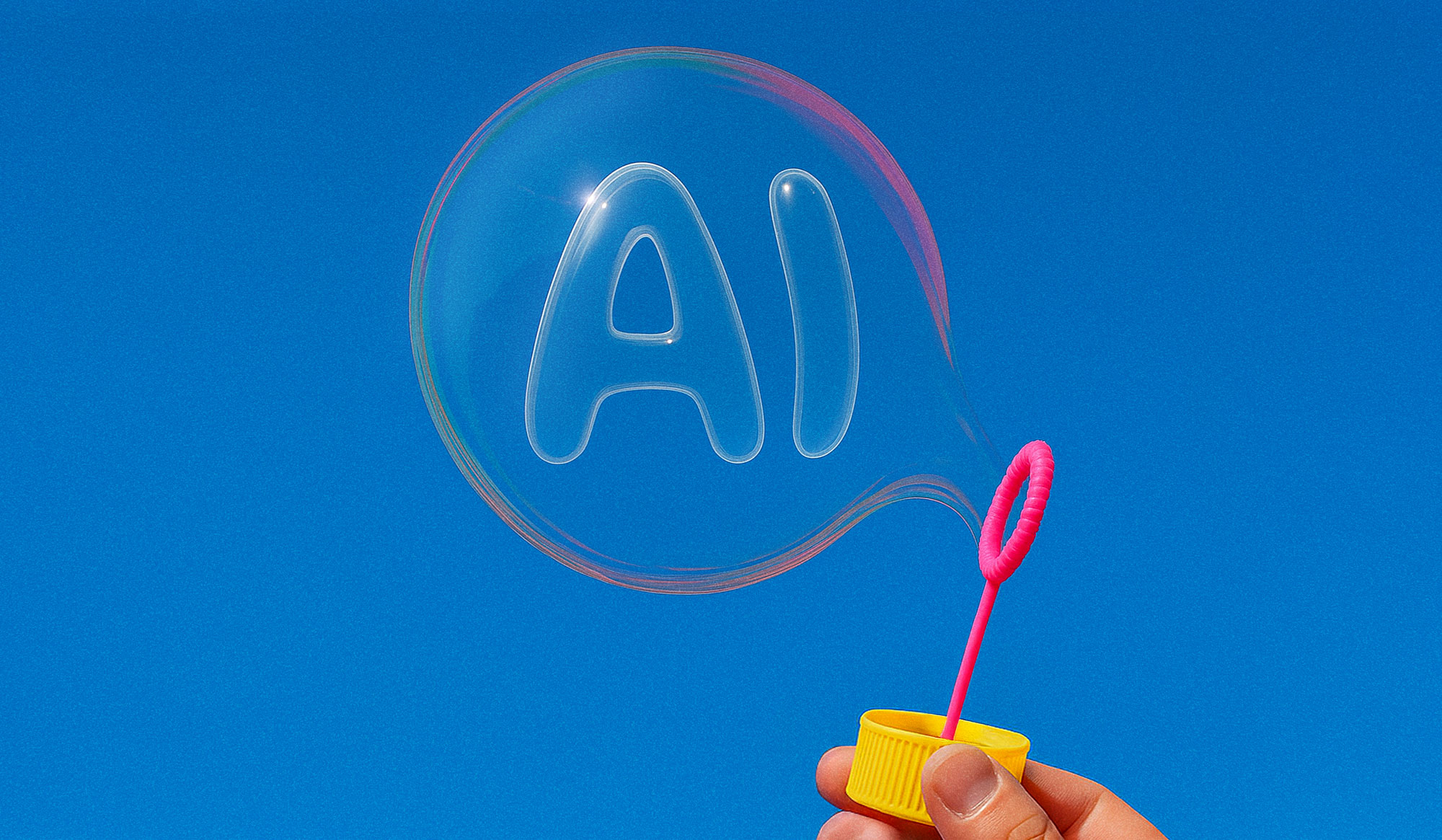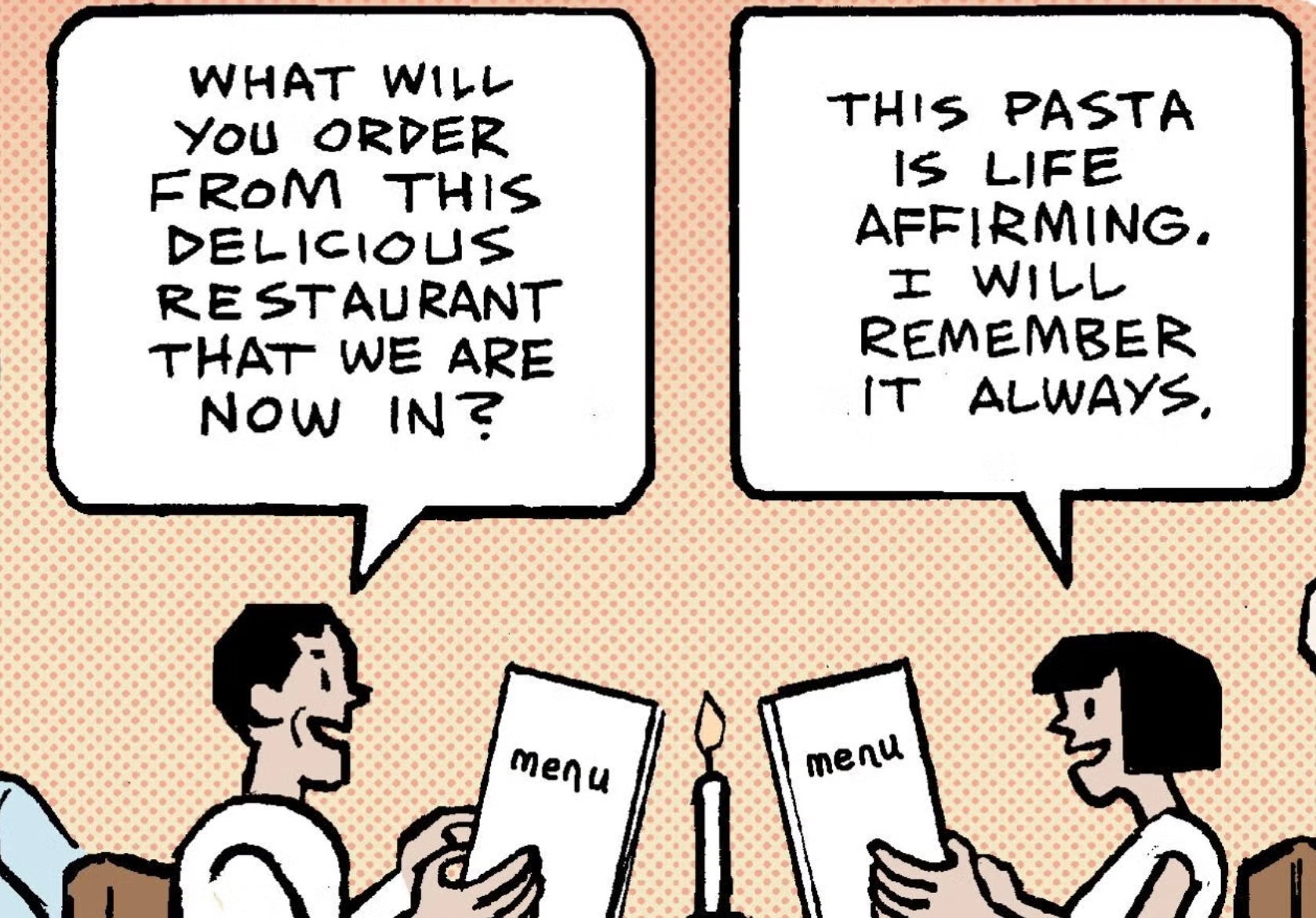#AI-generated content
#AI-generated content
[ follow ]
#ai-generated-content
Boston Bruins
fromLos Angeles Times
2 days agoU.S. Olympic hockey star 'would never say' what White House shared in AI video
The White House published an AI-generated video on TikTok falsely depicting Olympic hockey star Brady Tkachuk making derogatory comments about Canadians, which he publicly rejected as misrepresentative.
Social media marketing
fromFuturism
1 day agoMeta Reels Is Filling Up With AI Slop of Faith Healers Performing Miraculous Cures
AI-generated faith healer videos depicting graphic miracle healings are proliferating across Meta platforms, accumulating millions of views and spreading misinformation about spiritual healing.
Artificial intelligence
fromBusiness Insider
3 days agoViral 'ad' imagines aged Elon Musk, Jeff Bezos, and Sam Altman as energy execs using humans to power AI
AiCandy's viral spoof ad imagines a 2036 gym where unemployed humans power AI through exercise, satirizing AI's massive energy demands and job displacement fears.
fromwww.dw.com
3 days agoFact check: How to cut through Epstein files disinformation
Just having the documents doesn't mean you can search them immediately. You have to make them machine-readable first. Even though these are now public records, it does not mean they are verified, true or accurate. A name appearing in a document does not, by itself, establish involvement in criminal activity. Each reference must be examined in full context.
US news
fromABC7 San Francisco
4 days agoSan Jose Animal Care Center hit hard by fake viral FB post that used AI photo of shelter dog
We were flooded with calls, and the dog has already been adopted, not in danger of euthanasia. It's disappointing. Here we are getting blasted by untrue statements. The calls are taking valuable time and resources away from other animals at the shelter.
Pets
fromNature
5 days agoFive ways to spot when a paper is a fraud
A growing number of AI tools can detect fraudulent elements in papers, but they can be expensive to use. Such tools are probably better deployed by journal publishers rather than individual reviewers, says Elisabeth Bik, a science-integrity consultant in San Francisco, California, especially because feeding unpublished content into AI tools can compromise confidentiality and is generally frowned on during peer review.
Science
fromThe Business of Fashion
1 week agoHow Fake AI Influencers Generate Real Cash
Beauty and fashion influencer Eni Popoola first learned she'd been deepfaked the way many creators do: from her audience. A YouTube ad sent by a follower featured her face and her voice, promoting an online course she had never heard of. "People were sending screenshots saying, 'Hey, there's this video of you, and we obviously know it's not you, because this is not something that you would talk about,'" Popoola said. She's far from alone, as the experience of finding one's AI doppelganger - promoting unknown supplements, self-help content or beauty products - is becoming increasingly commonplace in the creator economy.
Marketing tech
fromBusiness Insider
2 weeks agoHow Disney picks its AI copyright battles depends on who's ripping it off
No, Disney did not release footage of a never-before-seen fight sequence between Marvel's Wolverine and Thanos (spoiler: Thanos won). That clip, which amassed over 142,000 views on X over 48 hours, was created using Seedance 2.0, an AI video generation model that ByteDance debuted last week. The tool created a buzz on social media, where one user made a hyperrealistic AI video of Tom Cruise and Brad Pitt fighting over Jeffrey Epstein.
Intellectual property law
fromAcast
2 weeks agoGEO, Fanout, Agents: Mike King's Take on Where Search Is Really Heading | Business Class Lounge by SearchPilot, hosted by Will Critchlow
Will Critchlow catches up with Mike King, founder and CEO at iPullRank to talk about GEO, fanout queries, agents, and what the cutting edge feels like at a top agency. Mike and Will go way back, so this episode covers a lot of ground, from SEO to Mike's view on the place of AI in the production of art. This episode is produced by Mark Cotton and hosted by Will Critchlow - you can follow Will on Twitter: @willcritchlow.
Marketing tech
fromPractical Ecommerce
3 weeks agoGoogle Discover for Ecommerce
Google says the update improved quality. It aimed to reduce the presence of clickbait and low-value content while surfacing more in-depth, original, and timely material from sites with demonstrated expertise. Some published reports speculated that the update devalued AI-generated content, yet Google's concern is probably not artificial intelligence per se. Rather, it is scaled, thin, or risky AI-generated content that degrades trust.
Marketing
fromThe Verge
1 month agoMark Zuckerberg is all-in on AI as the new social media
Meta CEO Mark Zuckerberg's metaverse dreams seem to have been replaced by a new vision: an AI-generated social feed. In an earnings call on Wednesday, Zuckerberg reiterated his belief that AI will become the next big media format, making feeds "more immersive and interactive:" We started with text, and then moved to photos when we got phones with cameras, and then moved to video when mobile networks got fast enough. Soon, we'll see an explosion of new media formats that are more immersive and interactive, and only possible because of advances in AI.
Artificial intelligence
Photography
fromThe Walrus
1 month agoTrump Is the Greatest Hypnotist of Our Time | The Walrus
A fabricated philosophical book, amplified through coordinated human and AI-driven dissemination, generated authentic scholarly debate and self-reinforcing social realities across digital and cultural networks.
fromThe Drum
1 month agoB2B marketing in 2026: subtle celebrity, empowered employees, and immersive experiences
Celebrity has long been a staple of B2C advertising, but in B2B, it's historically been treated as nothing more than a huge flex. Too often, an A-list name signals budget more than insight. When it's misaligned, the backlash can outweigh the buzz. Look no further than the ire Salesforce received in 2023 for paying Matthew McConaughey millions while simultaneously laying off thousands of employees.
Marketing
fromMedium
1 month agoAI won't (re)generate your focus
You settle in for a quick scroll through your feed, maybe just to unwind for a minute or two. But somewhere between a cooking hack and a clip you've already forgotten, forty minutes vanished. It's all a blur. Welcome to the era of infinite content and finite attention, where our brains are working overtime just to keep up with the deluge.
Digital life
fromKotaku
1 month agoNew Fatal Fury Trailer Slammed By Fans Who Think Its Full Of AI
On Thursday, SNK released a trailer for Fatal Fury: CotW 's upcoming second season, which launches on January 22. The trailer promises a pretty robust release schedule for the game's anniversary with monthly character drops over a six-month period. Returning characters Kim Jae Hoon, Nightmare Geese, Blue Mary, and Wolfgang Krauser are slated to join the game's roster, too. However, the excitement of fan-favorites returning has been almost entirely overshadowed by the game's latest trailer incorporating apparent AI-generated clips.
Video games
fromThe Business of Fashion
1 month agoThe Anti-AI Aesthetic Taking Over Social Media
San Diego-based Vanna Jimenez became a beauty influencer by accident. A year ago, she began posting her morning routines on TikTok and Instagram out of her tiny antique bathroom. While she initially focused on her love of 1960s fashion, her skincare and makeup - tossed artfully across a silver tray piled with her coffee, jewellery, toothpaste, books and accessories - quickly gained followers and the attention of beauty brands.
Social media marketing
fromNextgov.com
1 month agoAnalysts watch for heightened cyber, disinformation campaigns following Venezuela raid
Various groups are keeping their eyes peeled for hacking and information warfare efforts launched in response to an unprecedented U.S. operation conducted over the weekend that captured Venezuelan leader Nicolás Maduro and brought him to New York to face criminal charges. The Cybersecurity and Infrastructure Security Agency is continuing to monitor the cyber landscape in the raid's aftermath. In a written statement, CISA acting Director Madhu Gottumukkala did not acknowledge any disinformation tracking, but said that the recent events in Venezuela demand "heightened vigilance" across sectors.
Information security
[ Load more ]















